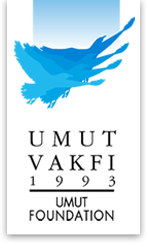Institute for Citizenship
"GURKAYNAK" THE REASON TO ESTABLISH A CITIZENSHIP INSTITUTE
Jean-Jacques Rousseau (1964, p.19) says “we have physicists, geometricians, chemists, astronomers, poets, musicians, artists, but we don’t have citizens any more”. Really, being a citizen is a concept far beyond being a very clearly described legal concept.
We can describe the citizen as a person interested in the social world – of the society he is a part of, the world he shares with others – and who is interested in the problems, someone informed about these problems, someone who feels responsible for bringing in solutions and is equipped with necessary knowledge and abilities. Besides these individual characteristics, a citizen must have the ability to cooperate with others, effectively participate in society and get organized, and respect human rights and believe in the superiority of the law when using his abilities.
It is easy to list the features that an effective and capable citizen would possess and gather these in a few sentences with “must...”, “should...” and use the words “abilities”, “knowledge”, “talents”, and “characteristics”. The Difficult thing is to be part of the comprehensive and multi-dimensional effort for the construction and development of each feature, ability, and so on.
The Umut Foundation was founded to promote these citizenship features. The Gurkaynak Citizenship Institute (GCI) was opened firstly to realize educational and all kinds of national and international attempts necessary to acquire democratic abilities, principles and values which form the basis of these features.
Non-governmental organizations exist as a part of the civilized, democratic social formation, and we call these NGOs.
As an NGO with the responsibility to contribute to the establishment and stability of a democratic, contemporary, civilized society with conscious citizens, the GCI claims that, effective, capable and participative citizens – citizens of the 21st century - must have an infrastructure as given below, and see themselves as being responsible for the establishment of this infrastructure:
The Effective, capable and participative citizen – the citizen of the 21st century:
- Is respectful and sensitive to human pride and human rights, and objects to actions that are incompatible with human pride, such as torture;
- Has confidence in the civil state and the superiority of law, and stands up against unfair actions;
- Knows his or her rights and freedoms and the ways to use and protect them;
- Is conscious and responsible of being a citizen and has the power to act;
- Has social responsibility;
- Makes decisions in a rational manner about his or her position as a citizen;
- Knows how to think critically, to behave responsibly, to solve problems and conflicts without violence, who knows the basic principles and processes of human rights (and the related international documents), knows how to get organized with a cooperative effort, knows how to decide with the group, knows the ways to act to protect and using his or her rights, knows how to communicate in a healthy manner (expressing oneself, listening, using non-verbal communication and “reading”, etc.);
- Is against violence and supports peace;
- Has assimilated concepts of justice, freedom, peace, equality, and fairness;
- Has outgrown prejudice;
- Is sensitive to environmental problems;
- Can stand against unjust laws;
- Has developed skills for positive inter-personal relations, producing ideas and researching.
| |
| Biga Civilian Society Platform (BCSP) Action Achievement With Contribution Of "Gurkaynak" Institute (1999 - 2001) |
